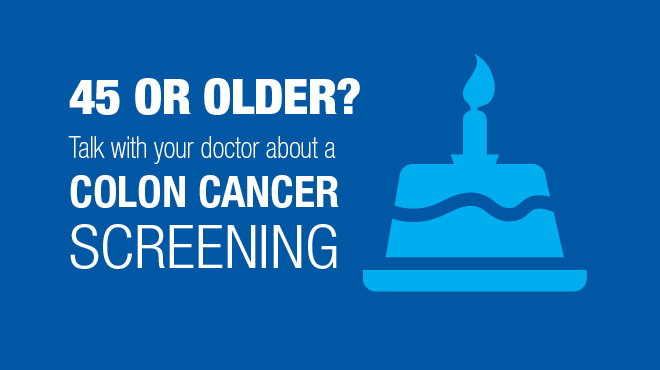Recent Posts
-
 Speaking of HealthWhat’s the difference between inflammatory bowel disease and irritable bowel syndrome?July 06, 2022
Speaking of HealthWhat’s the difference between inflammatory bowel disease and irritable bowel syndrome?July 06, 2022 -

Living with Crohn's disease or colitis

More than half a million people in the U.S. have Crohn's disease, and 600,000 to 900,000 people in the U.S. have ulcerative colitis, according to the National Institute of Diabetes and Digestive and Kidney Diseases.
Inflammatory bowel disease, or IBD, is an umbrella term that describes disorders involving chronic digestive tract inflammation. For some people, inflammatory bowel disease is only a mild illness. For others, it can be debilitating and sometimes leads to life-threatening complications.
Crohn's disease and ulcerative colitis are two types of inflammatory bowel disease:
- Crohn's disease is characterized by inflammation of the lining of your digestive tract, which often spreads deep into affected tissues.
- Ulcerative colitis causes long-lasting inflammation and ulcers in the innermost lining of your large intestine and rectum.
Crohn's disease and ulcerative colitis usually cause diarrhea, rectal bleeding, abdominal pain, fatigue and weight loss. The symptoms of Crohn's disease and colitis don't just affect you physically. They also take an emotional toll.
With Crohn's disease, any part of your small or large intestine can be involved, and it may be continuous or involve multiple segments. Signs and symptoms of Crohn's disease can range from mild to severe. They usually develop gradually, but they sometimes come on suddenly and without warning. You also may have periods of remission.
Although there's no firm evidence that any particular foods cause Crohn's disease, certain things seem to aggravate flare-ups. A food diary can help you identify personal triggers. Avoid highly processed foods and foods with high sugar, particularly refined sugars; limit dairy products; eat smaller meals; stay hydrated; and avoid caffeine, alcohol and carbonation.
It's important to understand that while inflammatory bowel disease increases your risk of colon cancer, it doesn't necessarily lead to colon cancer. Treatment for ulcerative colitis usually involves drug therapy or surgery. Treatment for Crohn's disease also involves drug therapy and may include nutrition therapy or surgery.
Therapies can significantly reduce its signs and symptoms and even bring about long-term remission and healing of inflammation. With treatment, many people can function well.
IBD risk factors
Risk factors for inflammatory bowel disease include:
- Age
Most people who develop inflammatory bowel disease are diagnosed before they're 30. But some people don't develop the disease until 50 or older. - Race or ethnicity
Although inflammatory bowel disease is more common in white people, it can occur in any race. Cases are increasing in other races and ethnicities. - Family history
You're at higher risk if you have a close relative, such as a parent, sibling or child, with the disease. - Cigarette smoking
Cigarette smoking is the most important controllable risk factor for developing Crohn's disease. Smoking may help prevent ulcerative colitis. However, its harm to overall health outweighs any benefit and quitting smoking can improve the general health of your digestive tract and provide many other health benefits. - Nonsteroidal anti-inflammatory medications
Nonsteroidal anti-inflammatory medications may increase the risk of developing inflammatory bowel disease or worsen the disease in people with inflammatory bowel disease. These include ibuprofen (Advil, Motrin IB, others), naproxen sodium (Aleve), diclofenac sodium and others.
Gut health and brain health connection
Psychological stress also can heighten pain in the body, regardless of the source of pain. The gut is especially susceptible to this because of the brain-gut connection — the linking of the emotional and cognitive centers of the brain with intestinal functions. Anxiety, worry, depression and post-traumatic stress disorder can heighten pain experiences in patients with IBD.
Living with a chronic and often painful illness can affect your mental health and emotional well-being. It can be challenging and frustrating to manage not only the physical symptoms of Crohn's disease or ulcerative colitis but also the emotional toll it can have on you. Stress, depression and anxiety can play a significant role in how you might deal with your situation.
For people living with Crohn's disease or ulcerative colitis, consider these tips to help you cope:
- Be informed.
One of the best ways to be more in control is to learn as much as possible about inflammatory bowel disease. - Join a support group.
Although support groups aren't for everyone, they can provide valuable information about your condition and emotional support. Mayo Clinic Connect has a Digestive Health Support Group to connect with others talking about Crohn's disease and colitis. Mayo Clinic moderates this online patient community. - Talk to a therapist.
Some people find it helpful to consult a mental health professional familiar with inflammatory bowel disease and the emotional difficulties it can cause.
Daisy Batista, M.D., is a gastroenterologist in La Crosse, Wisconsin.




